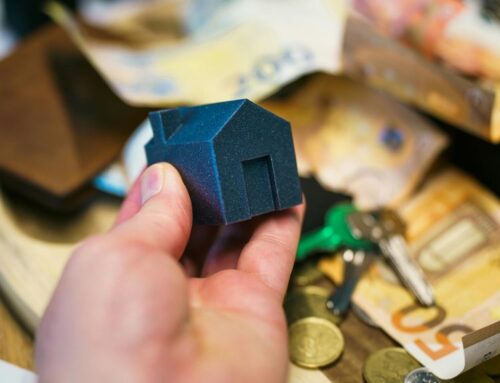If you’re selling a fire-damaged home in Atlanta, you’re not alone. I know it can feel overwhelming, but you have options. Whether you choose to sell as-is to investors, make repairs to enhance value, or navigate insurance claims, understanding the impact of fire damage is key. It’s also important to assess the extent of the damage and consider market conditions. Stick around, and I’ll share more tips to help you make informed decisions.
Key Takeaways
- Assess the extent of fire damage, including smoke and structural integrity, to determine repair needs before selling your home in Atlanta.
- Consider selling as-is to cash buyers or investors for a quicker, hassle-free sale, albeit at potentially lower offers.
- List your fire-damaged home with a real estate agent who has experience in selling similar properties and understands the local market.
- Explore auction options for a fast sale, or consider a short sale if you’re facing financial difficulties due to repairs.
- Highlight the property’s renovation potential in marketing materials and use professional photography to attract buyers interested in fixer-uppers.
Understanding the Impact of Fire Damage on Property Value
When I think about selling a fire-damaged home, it’s vital to understand how that damage affects property value. Fire damage can greatly lower your home’s worth, depending on factors like the extent of the destruction and repair costs. Buyers often perceive these homes as risky investments, which can lead to lower offers. It’s important to be transparent about the damage and any repairs made. Even if you’ve addressed some issues, potential buyers might still hesitate. Understanding this impact helps me set realistic expectations and navigate the selling process more effectively, ensuring I make informed decisions throughout.
Assessing the Extent of Damage: What You Need to Know
When I’m evaluating fire damage, it’s essential to understand the different types of damage your home might have sustained. I always recommend focusing on the structural integrity first, as this will guide your repair or replace decisions. Knowing what to look for can make a big difference in your next steps.
Types of Fire Damage
Although I wish it weren’t the case, fire damage can vary markedly from one situation to another, making it essential to assess the extent of the destruction. There are several types of fire damage to evaluate. For instance, you might encounter smoke damage, which can leave lingering odors and staining. Then there’s charring, which affects surfaces directly touched by flames. Additionally, water damage from firefighting efforts can complicate matters, leading to mold growth. Finally, thermal damage can weaken materials without visible signs. Understanding these types will help you better navigate the selling process and make informed decisions.
Structural Integrity Assessment
Before listing your fire-damaged home, it’s important to assess its structural integrity, as hidden damage can pose serious safety risks. I recommend hiring a professional inspector who specializes in fire-damaged properties. They’ll evaluate the foundation, walls, and roof to determine what’s salvageable. Here’s a quick guide to help you understand what might be assessed:
| Structural Component | Potential Issues | Importance |
|---|---|---|
| Foundation | Cracks, shifting | Guarantees overall stability |
| Walls | Warping, cracks | Affects load-bearing capacity |
| Roof | Weak spots, leaks | Protects from weather damage |
| Flooring | Buckling, damage | Impact on livability |
Repair or Replace Options
After evaluating the structural integrity of your fire-damaged home, the next step is to contemplate your repair or replace options based on the extent of the damage. If the damage is minor, repairs might be a cost-effective way to restore your home’s value. However, if key structures like beams or walls are compromised, replacing them could be necessary. It’s essential to get estimates from contractors to weigh costs and timelines. Consider the long-term implications of each option, as repairs might be quicker but replacements could enhance safety and marketability. Ultimately, you want to make the best decision for your future.
Selling As-Is: Pros and Cons
When I consider selling a fire-damaged home as-is, I can’t help but weigh the benefits and drawbacks. On the plus side, I can save time and money by not investing in repairs. It also appeals to cash buyers who want a project. However, the downside is that I might receive a lower offer since buyers factor in the damage. There’s also the emotional weight of parting with a home that’s been through so much. Ultimately, I have to decide if the convenience of selling as-is outweighs the potential financial losses. It’s a tough call, and every situation is unique.
Making Repairs: Is It Worth the Investment?
When I think about making repairs to a fire-damaged home, I weigh the costs against the potential market value. It’s essential to take into account how much I’ll spend on repairs and whether my insurance will cover some of those expenses. Ultimately, I want to make a decision that aligns with my financial goals and the current market conditions.
Assessing Repair Costs
Although it might be tempting to dive straight into repairs after a fire, evaluating the costs first is essential. I’ve learned that getting multiple quotes from contractors can help me gauge the true expense of restoring my home. Additionally, I consider whether I can tackle some repairs myself, saving on labor costs. It’s crucial to prioritize repairs that improve safety and structural integrity. I also keep in mind the potential hidden damage that might not be obvious initially. By doing a thorough cost assessment, I can make informed decisions about what repairs are truly worth the investment before listing my home.
Potential Market Value
Determining the potential market value of a fire-damaged home can be tricky, especially when deciding whether to invest in repairs. I’ve found it’s essential to weigh the cost of repairs against the possible increase in value. If you’re looking at significant structural damage, it might be wise to fix it before selling. However, minor repairs could yield a good return without breaking the bank. It’s also helpful to consult local real estate agents familiar with fire-damaged properties. Ultimately, consider your financial situation and goals—sometimes selling “as-is” can be a sound decision if repairs aren’t feasible.
Insurance Considerations
Before diving into repairs, it’s crucial to understand your insurance policy and what it covers. I found it helpful to evaluate a few key points before making any investments:
- Coverage Limits: Know how much your policy will pay for repairs and replacements.
- Deductibles: Understand your deductible amount, as it affects your out-of-pocket costs before insurance kicks in.
- Claim Process: Familiarize yourself with the claims process to avoid delays in receiving funds.
Working With Real Estate Investors: a Quick Sale Option
When you’re looking to sell a fire-damaged home quickly, partnering with real estate investors can be a smart choice. These investors often buy properties as-is, saving you the hassle of repairs or renovations. They typically move fast, providing cash offers that can close in a matter of days. I’ve found that this route not only saves time but also reduces stress. Investors are experienced in handling distressed properties, so they understand the challenges and can give you a fair price. If you need a quick sale, consider reaching out to local investors to discuss your options.
Navigating Insurance Claims: What to Consider
How do you navigate the often-complex world of insurance claims after a fire has damaged your home? It can be overwhelming, but focusing on key aspects helps. Here are three things to contemplate:
- Document Everything: Take photos and keep records of damages and repairs. This evidence is essential for your claim.
- Review Your Policy: Understand your coverage limits and any exclusions that may apply to fire damage.
- Communicate Clearly: Stay in touch with your insurance adjuster and ask questions to guarantee you understand the process and your rights.
Tips for Selling a Fire-Damaged Home Successfully
Selling a fire-damaged home can be an intimidating task, especially if you’re unsure where to start. First, assess the damage and consider getting a professional inspection. This gives potential buyers a clear picture of repairs needed. Next, gather all relevant documentation, including insurance claims and repair estimates. Be honest about the home’s condition in your listing; transparency builds trust. Don’t underestimate the power of curb appeal—clean up the exterior and stage the interior as best as you can. Finally, consider working with a real estate agent experienced in selling damaged properties. They can guide you through the process effectively.
Frequently Asked Questions
Can I Sell a Fire-Damaged Home Without Disclosing the Damage?
I’ve learned that selling a fire-damaged home without disclosing the damage isn’t advisable. It could lead to legal troubles later. Transparency builds trust, and I believe it’s best to be upfront with potential buyers.
How Does Fire Damage Affect Insurance Premiums for New Homeowners?
Imagine walking on a tightrope; fire damage can tip the balance of insurance premiums. I’ve seen new homeowners face higher rates, as insurers perceive increased risk, impacting budgets and choices for their future home sweet home.
What Are the Tax Implications of Selling a Fire-Damaged Home?
When selling a fire-damaged home, I’ve learned that tax implications can be complex. You might face capital gains taxes or deductions for losses, so it’s essential to consult a tax professional for personalized advice.
Are There Specific Disclosures Required for Fire-Damaged Properties in Atlanta?
When I think about selling a fire-damaged property, I realize there’re specific disclosures required in Atlanta. It’s essential to be transparent about damage, ensuring potential buyers know what they’re getting into right from the start.
How Long Does the Selling Process Typically Take for Fire-Damaged Homes?
The selling process for fire-damaged homes can vary, but I’ve found it usually takes anywhere from a few weeks to several months. Factors like repairs, inspections, and buyer interest really impact the timeline.
Conclusion
Selling a fire-damaged home in Atlanta might seem like trying to sell ice to an Eskimo, but it doesn’t have to be a total disaster! Whether you choose to sell as-is, make repairs, or team up with investors, there’s always a silver lining. With the right approach and a sprinkle of determination, you can turn that charred mess into a golden opportunity. So, roll up your sleeves and plunge into it—your next chapter is just around the corner!











